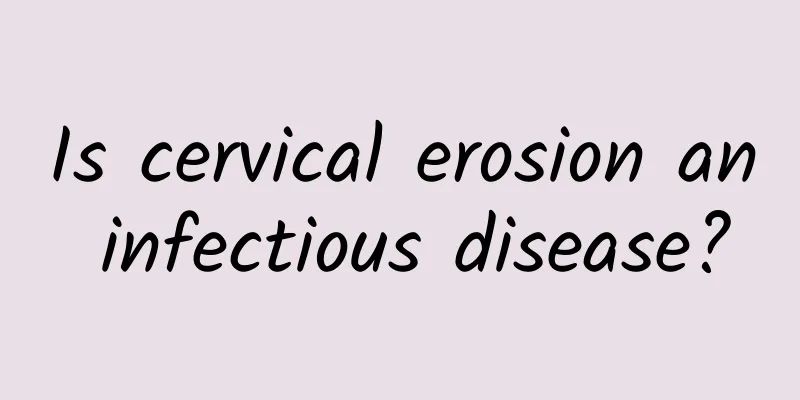5 issues to pay attention to after artificial abortion

|
Question 1: Irregular menstruation and lower abdominal pain after surgery Artificial abortion can have many adverse effects on women. Because surgery can cause a sudden termination of pregnancy, which can easily prevent the ovaries from responding normally to the anterior pituitary gonadotropin in a timely manner; at the same time, surgical stimulation can cause endocrine dysfunction; in addition, abortion surgery can increase the chance of uterine cavity decidua flowing back into the pelvic cavity, causing endometriosis; uterine cavity operation can also easily increase the chance of infection, causing endometritis, pelvic connective tissue inflammation, adnexitis, etc. The above multiple factors can cause irregular menstruation and lower abdominal pain. Solution: If you experience lower abdominal pain or irregular menstruation after an abortion, go to a regular hospital's gynecology department for an examination in time and take treatment after finding out the cause. Question 2: Breast pain after surgery. Due to the sudden termination of pregnancy, the level of sex hormones in the body will drop suddenly. This will cause the newly developed mammary glands to stop developing suddenly, resulting in breast lumps or pain. If the pain is not particularly obvious, no special treatment is required, and the pain will often disappear naturally after 1-2 months. It is worth pointing out that breast pain caused by abortion surgery may last for a long time and potentially stimulate the breasts, causing breast hyperplasia or lumps, etc. Question 3: The amount of menstrual blood decreases after surgery. Multiple surgeries can damage the endometrium and cause partial adhesions between the cervix and the uterine cavity. A small adhesion area will cause a decrease in menstrual blood volume, while a large adhesion area may cause amenorrhea. If adhesions occur in the cervix, it will make it difficult for menstrual blood to be discharged from the uterine cavity, resulting in abdominal pain during menstruation. Solution: You should go to the hospital for treatment. When the cervix is cervical, you must go to the obstetrics and gynecology department of a regular hospital to use a probe to break through it, and place an iodine gauze to prevent adhesion again. When the uterine cavity is uterine, it can be separated under hysteroscopy, and then a metal contraceptive ring can be placed to prevent adhesion again. If the menstrual blood volume is reduced due to incomplete abortion surgery, you should have another uterine curettage. Question 4: Inability to get pregnant after surgery Artificial abortion may cause complications or sequelae in the short and long term after surgery, such as endometriosis, irregular menstruation, or even amenorrhea. Therefore, some women experience menstrual abnormalities or even amenorrhea after artificial abortion, which leads to infertility. Solution: Since you haven't given birth yet, you must take strict contraceptive measures. The couple should work together to avoid unwanted pregnancies and not have or have fewer abortions to avoid affecting their reproductive health. Question 5: Bad mood after the operation. Generally speaking, abortion surgery will not cause much psychological impact. Only a few people will experience great pain or depression after abortion. Solution: During this period, you need more care and love from your husband, family, friends or colleagues. You can also distract yourself and get rid of negative emotions by watching TV, talking to close friends, reading books or calling consultation hotlines. If necessary, seek counseling from a psychologist. |
<<: Dietary precautions after painless abortion
>>: Expert answer: How to adjust your mental state before abortion
Recommend
Will ovarian cysts recur after ovarian removal?
Will ovarian cysts recur after ovarian removal? O...
How to take care of ectopic pregnancy in daily life
I believe everyone has heard of the disease of ec...
Dietary considerations for menopausal women
Women will have many symptoms of discomfort after...
Experts explain common causes of ectopic pregnancy
Ectopic pregnancy is a gynecological disease with...
Get rid of visceral fat! There is a set of 4 steps for lymphatic massage
Here we introduce the basic method of lymphatic m...
Is there any connection between ovarian cysts and pregnancy? How to treat it?
What is the connection between ovarian cysts and ...
"Drink soup before eating" weight loss method! Nutritionist warns: If you have these two problems, don't eat like this
The latest concept of weight loss is "rising...
Treatment methods for cervical erosion, 3 clinical treatment plans for cervical erosion
If you want to treat cervical erosion, there are ...
Intrauterine adhesions---a disease that causes heartache for many women of childbearing age
Intrauterine adhesions (IUA) refer to the mutual ...
Lose 2 kg in 10 days! Yi Nengjing's unique weight loss method
[Key points]: "The ageless goddess" Yi ...
Congenital absence of vagina treatment hospital
As a patient, the level of hospital experts is on...
What are the clinical manifestations and hazards of bacterial vaginosis?
Bacterial vaginitis is the most common vaginal in...
What is the daily cost of menopause treatment?
Gynecologists said: Generally, routine gynecologi...
12 steps to purify body and mind and raise body temperature
The 12 connected movements combined with deep bre...
10 minutes a day! 10 basic rules for family exercise
Rule 1: Prepare a full-length mirror Before start...









